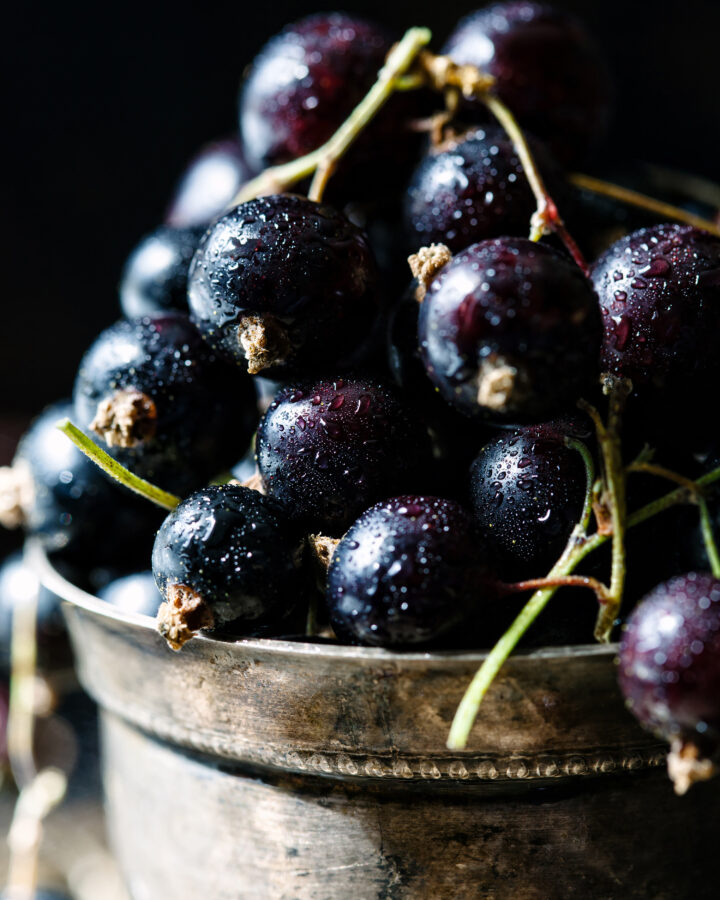The Anti-Inflammatory Foods That Help Protect Your Heart

Your heart works nonstop to keep you alive and thriving.
We’ve all heard that the key to keeping your heart healthy is getting regular exercise, managing stress, nourishing relationships, and stacking your plate with heart-healthy foods. Today we wanted to call out a few super-star foods that help with one of the main drivers of [hahrt dih-zeez]nounConditions affecting heart health and circulation.Learn More: [in-fluh-mey-shuhn]nounYour body’s response to an illness, injury or something that doesn’t belong in your body (like germs or toxic chemicals).Learn More.
Chronic inflammation in your arteries quietly fuels plaque buildup, the underlying cause of most heart disease. But nature has a built-in defense: certain foods packed with antioxidants and [pol-ee-fee-nawlz]nounPlant compounds that act as antioxidants.Learn More that calm inflammation and support your vascular system.
Why Inflammation Matters for Your Heart
Inflammation is the immune system’s response to injury or threat. But when inflammation sticks around, especially in your arteries, it sets the stage for atherosclerosis, which is the slow accumulation of plaque that narrows and hardens your blood vessels.
This chronic inflammation damages the lining of your arteries, making it easier for cholesterol and other substances to build up. Over time, this can lead to blockages that raise your risk of heart attack and stroke. A 2024 review in the New England Journal of Medicine confirmed that controlling inflammation is just as important as managing cholesterol levels when it comes to preventing cardiovascular disease.
The good news? The right foods can help turn down this inflammatory fire.
The Power of Polyphenols and Antioxidants
Polyphenols are natural compounds found in plants that act as antioxidants, molecules that neutralize free radicals, which are unstable atoms that cause oxidative stress and damage to cells, including those in your arteries.
Eating polyphenol-rich foods has been shown to reduce markers of inflammation like C-reactive protein (CRP) and improve endothelial function, which means your arteries stay flexible and healthy. A 2023 study highlighted how diets rich in polyphenols can reduce arterial inflammation and improve cardiovascular health by supporting blood vessel function and lowering oxidative stress over time.
The Best [an-tee-in-flam-uh-tawr-ee]adjectiveReducing inflammation, which contributes to better overall health.Learn More Foods That Help Protect Your Heart
Here are some of the top anti-inflammatory foods that are easy to include in your daily routine:
1. Elderberries, Bilberries, and Black currants
Elderberries, bilberries, and black currants have the highest amount of anthocyanins, a type of polyphenol that fights inflammation. Studies show that eating berries regularly can improve blood pressure and reduce LDL (“bad”) cholesterol oxidation, both key factors in heart disease risk). Blueberries and blackberries also contain high amounts of these inflammation-fighting polyphenols.
2. Capers, Onions, Shallots, Kale, and Spinach
These foods are high in quercetin (capers, onions, and shallots) and kaempferol (kale and spinach), powerful flavonoids found in leafy greens, fruits, and vegetables. They’ve been shown to reduce inflammation and protect cells from oxidative damage. And their anti-inflammatory effects extend to improving cardiovascular health by lowering blood pressure and enhancing blood vessel function, making them promising natural compounds for managing chronic inflammation and heart disease.
3. Turmeric
Curcumin, the active compound in turmeric, has been extensively studied for its anti-inflammatory properties. Clinical trials indicate curcumin supplements can lower systemic inflammation and improve endothelial function in people with cardiovascular risk factors. Add turmeric to soups, stews, or golden milk lattes for an easy dose.
4. Almonds, Walnuts, Flaxseeds, and Chia seeds
These nuts and seeds contain healthy fats, fiber, and polyphenols that reduce inflammation markers and improve cholesterol profiles. For example, walnuts are rich in [oh-may-guh three fat-ee as-ids]nounEssential fats that reduce inflammation and support brain health.Learn More, which have been linked to decreased arterial plaque and improved heart rhythm stability.
5. Green Tea
Green tea’s catechins offer antioxidant and anti-inflammatory benefits. Research shows that drinking green tea daily is associated with lower arterial stiffness and reduced risk of cardiovascular disease. Swap your afternoon coffee for a cup of green tea to enjoy these benefits.
How to Build an Anti-Inflammatory Plate
It’s not about eating a single “[soo-per-food]nounA nutrient-rich food that offers health benefits.Learn More.” It’s about creating a pattern of eating that regularly includes these powerful anti-inflammatory ingredients. Here are simple ways to get started:
- Aim to fill half your plate with colorful vegetables and fruits every meal.
- Add a handful of nuts or a tablespoon of seeds to your breakfast or salad.
- Use turmeric in cooking at least three times a week.
- Swap sugary beverages for green tea or water infused with fresh berries.
- Keep frozen berries and greens on hand for quick smoothies or meals.
Heart disease remains the leading cause of death worldwide, but many cases are preventable through lifestyle changes. As we age, the risk rises, and inflammation quietly increases too. Tackling inflammation through diet is a practical, accessible step anyone can take. The body responds quickly to positive dietary changes, so starting today can pay dividends tomorrow.
If you’re managing other risk factors like high blood pressure, high cholesterol, or diabetes, focusing on anti-inflammatory foods can complement your medical care and strengthen your defenses.
Your Weekly Anti-Inflammatory Checklist
Try this simple weekly tracker to build your anti-inflammatory habits:
- Eat berries at least 4 times per week.
- Include leafy greens in 5 meals per week.
- Use turmeric in cooking 3 times per week.
- Snack on nuts or seeds 3 times per week.
- Drink green tea 3 to 5 times per week.
Check in with yourself weekly. Which of these are easiest to add? Which feel like a stretch? Adjust and refine your approach as you learn what fits your life and taste.
The information provided in this article is for educational and informational purposes only and is not intended as health, medical, or financial advice. Do not use this information to diagnose or treat any health condition. Always consult a qualified healthcare provider regarding any questions you may have about a medical condition or health objectives. Read our disclaimers.


